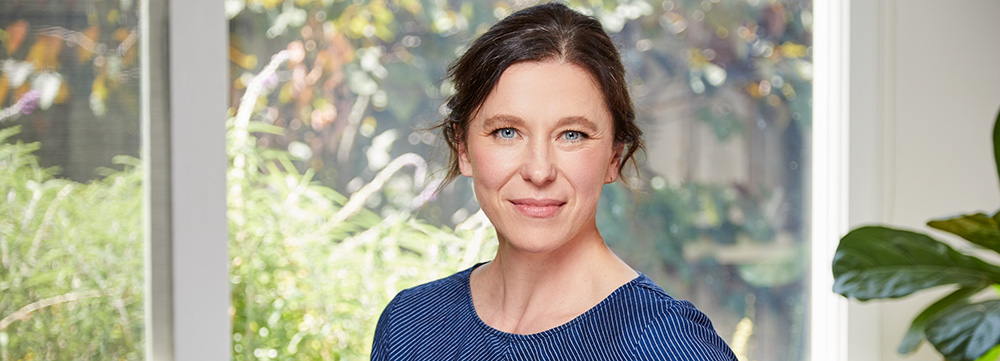Carly Schrever (1998)

Carly has found the perfect way to make her contribution to the world by marrying her legal career with her strong interest in psychology through completing a PhD on the occupational stress of the judiciary. Carly joined the Judicial College of Victoria, developing educational programmes for judges in 2007 and found a gap in their professional development; the focus was traditionally on their legal skills and not on the human dimensions of their role.
“It was always there- how do they manage the vicarious trauma, or the stress of writing judgements? The cat’s out of the bag regarding institutions trying to uphold any super-human ideal. The notion that judges are somehow above stress, don’t feel emotion; these archetypal ideals, that might have prevailed for centuries, people now know they are not the case. There have been more women appointed to the court and I think that’s changed the culture. Almost every judicial officer I spoke to feels that the pressures bearing upon the courts are increasing.”
Carly selected five courts to be included in her study and 67% of the judiciary within them responded to her survey. She found magistrates to be significantly more stressed than judges, attributing the difference to their lack of autonomy and time pressures. She also found 20% of all the surveyed judiciary met the criteria for burnout, but there was an even more concerning finding.
“The one that was really shocking was a measure I included of what’s called secondary traumatic stress, which refers to the development of Post-Traumatic Stress Disorder (PTSD)-like symptoms, not from your own trauma but from being repeatedly exposed to information about other people’s trauma, and 30% of the participants responded positively to that, which is enormous because the population prevalence PTSD in Australia is only 4%.”
The stress is cumulative, and brought on by a combination of factors: heavy workloads, the subject matter of cases, the intense scrutiny of the work- with every word potentially raked over by the appellate court or the media, with a view to finding fault with it, the public nature of the work, and the fact they are working in isolation. Her findings will aid Carly in the development of support systems.
“When I started the PhD, it was almost a taboo topic to suggest judges might be impacted by stress, it’s now, after eight years, become a topic of real global interest and judges all over the world are speaking openly about the stresses they face. They want to learn skills to manage it. I think there’s a groundswell. There are many reasons we want people in positions of power to have their stress at an appropriate level, particularly judges.”
For Carly, being the third female president of the Student General Committee in 2000 proved to be a difficult role. Leading the committee while a small but overbearing group of students dominated the College culture made it very challenging.
“Clearly things have changed regarding the status of women, it’s completely different now. I know it’s come a long way because I came back six years ago to give an education session to freshers on the laws of consent and we couldn’t teach them anything they didn’t already know. Society has come so far. It was beginning to shift in the late ’90s but there was still a lot of work to be done.”
Carly has turned the negatives into positives.
“I reflect on that time and see it as a microcosm of what plays out in society sometimes. That experience has shaped my understanding of power, culture and institutions. I learned so much about group thinking, gender politics, things that contribute to how institutions and cultures form and run. It also helped me shape my values and gain clarity on what I want my contribution to be in this world.”
